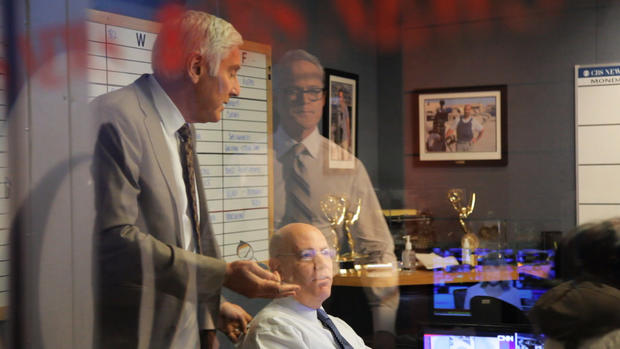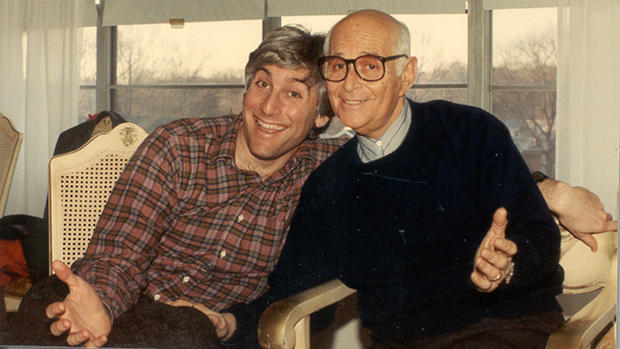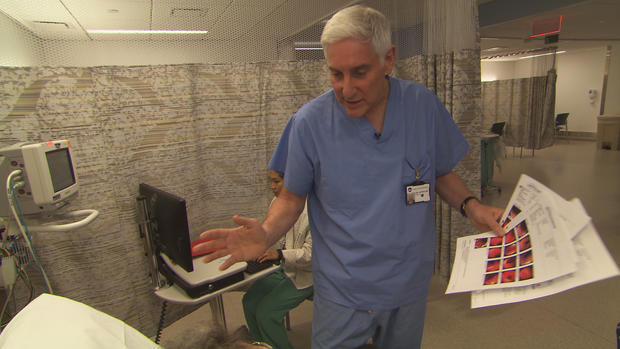Dr. Jon LaPook on the story he was born to report
60 Minutes viewers are seeing a new face on the broadcast this week -- but not an unfamiliar one. Dr. Jon LaPook, chief medical correspondent for the CBS Evening News, makes his 60 Minutes debut with a report on terminally ill patients who want to end their own lives by taking lethal medication.
It's a story LaPook pitched and one he was especially equipped to report, says 60 Minutes Executive Producer Jeff Fager. "He's born with a compassion," Fager says in the Overtime video above. "This story he's doing is a story that requires a lot of it. It's an end-of-life story, frightening to a lot of people -- and important."
As a practicing internist and gastroenterologist, Dr. LaPook is no stranger to important work. In his 10 years with CBS News, he has been the frontline reporter for CBS News on almost every big medical story, including the Ebola virus, Boston Marathon bombing and Zika virus.
He spoke with 60 Minutes Overtime about the similarities between practicing medicine and reporting on it. "If you're super meticulous, medicine is-- that's a great field for you and journalism, also," he tells Overtime's Ann Silvio. In the course of reporting, LaPook has caught errors in published medical studies and in statements by public health officials.
But there are times he has to put medicine before journalism. It happened in Haiti after the 2010 earthquake. He told a CBS News crew to stop filming when he needed to tend to a victim.
"I'm thinking, 'Don't use the fact that you're a physician to get publicity for yourself. To get ratings for CBS or for anybody else,'" he explains. "This person may be depending upon you for their life. Nothing else. Focused, just that person."
Dr. LaPook has roots in both TV and medicine. He comes from a long line of medical men, going back to his grandfather, but he married into television royalty. LaPook's father-in-law is famous sitcom writer Norman Lear, who was also a friend of 60 Minutes creator Don Hewitt. When LaPook tagged along on a visit to Hewitt's home some 30 years ago, he says, "The last thing in the world I was thinking about was that someday, years later, I would be on 60 Minutes."
Making the leap from medicine to journalism wasn't simple. When LaPook started his life as a reporter a decade ago on the CBS Evening News, he had almost no TV experience.
"I don't think he was natural on television at first. I think it took him some time," says Fager. "But you know, he's really gotten good. He's a doctor by training, but he's learned to be a reporter."
With a front row seat to developments in the medical field, LaPook also gets wind of important stories before they break.
"He can tell us what's really happening in public health," says CBS Evening News Executive Producer Steve Capus. He's a "very persuasive pitchman for the right kinds of stories."
That's what happened in 2012 after LaPook learned that a cancer drug was becoming hard to get. "Kids, babies with cancer, were not able to get cancer drugs because there was a shortage," he explains. Legislation to address the shortage was languishing in Congress. "Everybody supported this and yet it stood in Congress for 15 months and nothing was happening," he says.
LaPook fought for the story, pitching it multiple times before producers at the Evening News finally bit. And while reporting, he took the fight to Washington, grilling former House Speaker John Boehner and former Senate Majority Leader Harry Reid about the bill's prospects.
The story was a game-changer. Weeks after it aired, a bill was passed in the Senate by a vote of 96 to 1.
"People get embarrassed. The law gets passed and boom, lives are saved," LaPook says. "So, yeah, that could've been why I was born -- that one story."
When Dr. LaPook has a free moment, he's quick to help his newsroom colleagues with whatever ails them. They pop into his office to discuss highly personal health problems, and LaPook keeps a medical bag on hand.
"Our people are always on the go," Capus explains. "They're going into war zones, they're going into places where there are public health emergencies. There's bound to be issues that our people face."
LaPook says he doesn't mind being constantly on call to handle news colleagues' health emergencies and questions. "I love it," he tells Silvio. "It's a privilege. It's who I think I am," he says.
60 Minutes' Jeff Fager says he appreciates LaPook's contributions, both on camera and off.
"It's not unusual at CBS to spend your whole life working at CBS News," Fager says. "It becomes family almost, in a way. And he is our family physician. He really is."
This video was produced by Ann Silvio and Lisa Orlando and edited by Lisa Orlando. Select footage of Dr. LaPook was shot by Will Croxton. Sarah Shafer Prediger, Susan Bieber, and Rebecca Chertok Gonsalves contributed to the production of this story.


